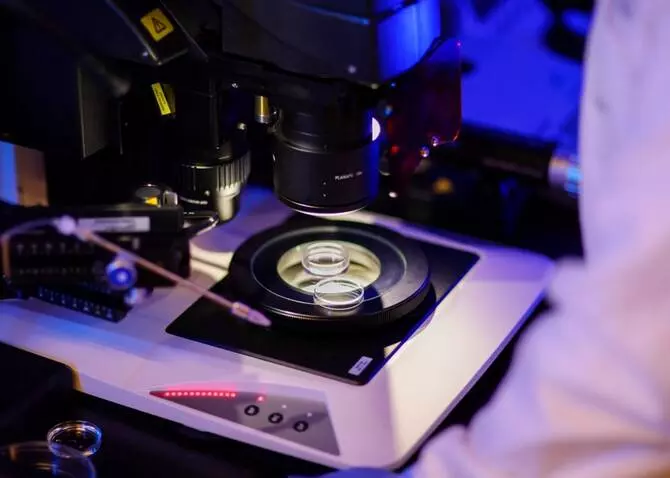
KAUST develops AI system to advance embryo research
text_fieldsKing Abdullah University of Science and Technology (KAUST) has unveiled a powerful new artificial intelligence tool designed to revolutionize the study of human embryo models grown in laboratories.
The AI-powered system, named deepBlastoid, is capable of analyzing thousands of microscopic images of human embryo models, known as blastoids, with a speed and accuracy comparable to trained scientists. According to researchers, the tool delivers results “1,000 times faster” than human experts.
“Little is known about the very early stages of embryo development. With deepBlastoid we can scale up blastoid research to study embryo development and the effects of chemicals on the embryo and pregnancy,” said Mo Li, an associate professor at KAUST and a specialist in stem cell biology.
Li’s laboratory was among the first to develop human blastoids, which are stem cell-based models used to simulate early embryo development under ethical lab conditions.
Because direct research on human embryos is ethically restricted, models like blastoids offer scientists a crucial alternative for investigating fertility, early developmental stages and potential pregnancy complications.
To develop deepBlastoid, the KAUST team trained the tool using more than 2,000 microscopic images. The system was then deployed to analyze over 10,000 additional images, helping researchers understand how various chemicals may impact early embryonic development.
These findings are particularly relevant for women who take medications or other drugs during the pre-pregnancy period. The insights from the study could provide new perspectives on how such substances might affect fertility and early stages of pregnancy.
“deepBlastoid not only matches human performance in accuracy, it delivers an unparalleled increase in throughput. This efficiency allows scientists to analyze vast amounts of data in a short time, enabling experiments that were previously unfeasible,” said Peter Wonka, professor and member of the Center of Excellence for Generative AI at KAUST.
The university’s latest innovation marks a major step forward in reproductive health research, promising faster and more scalable experimentation in a field where time and accuracy are critical.












